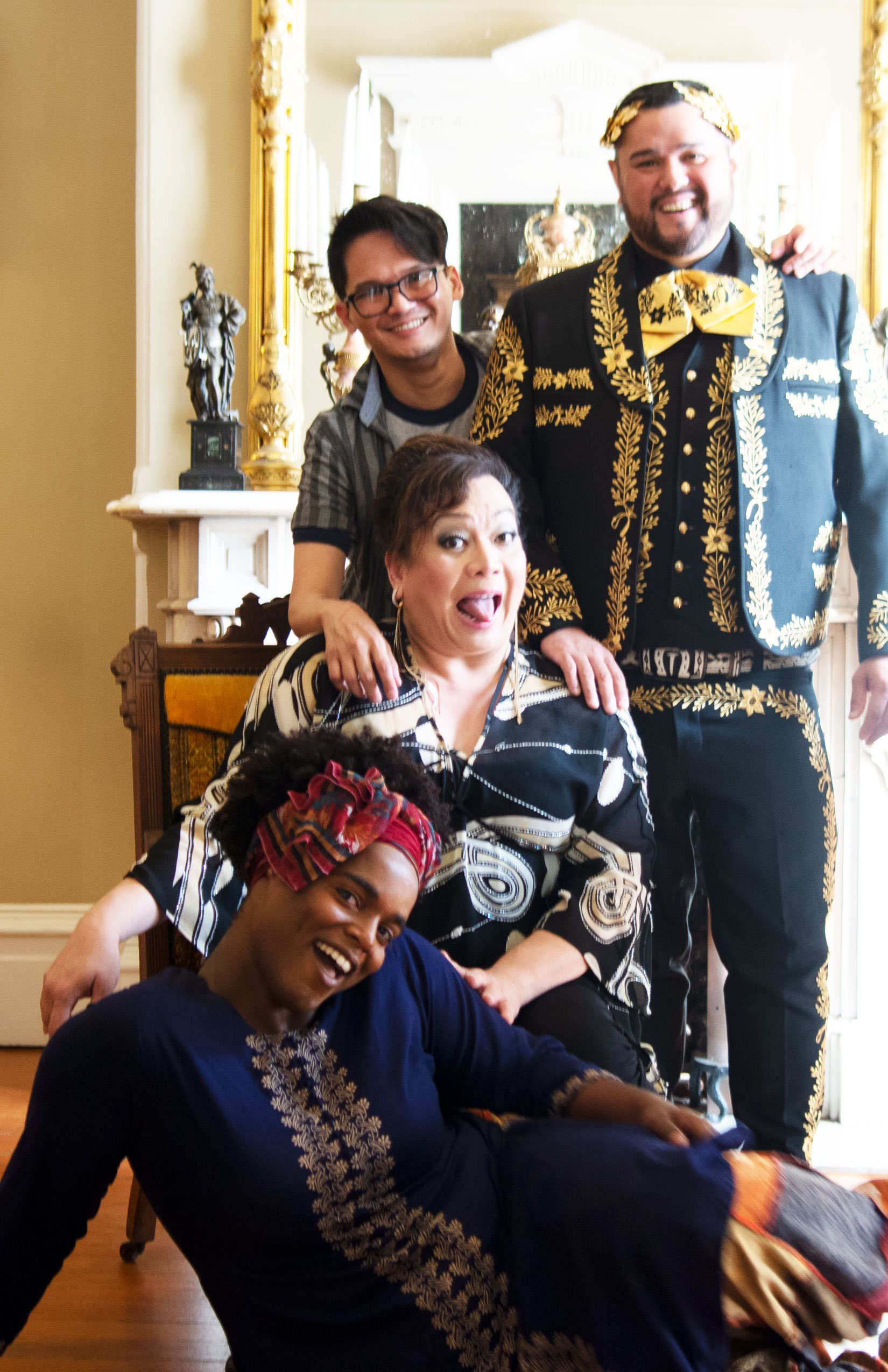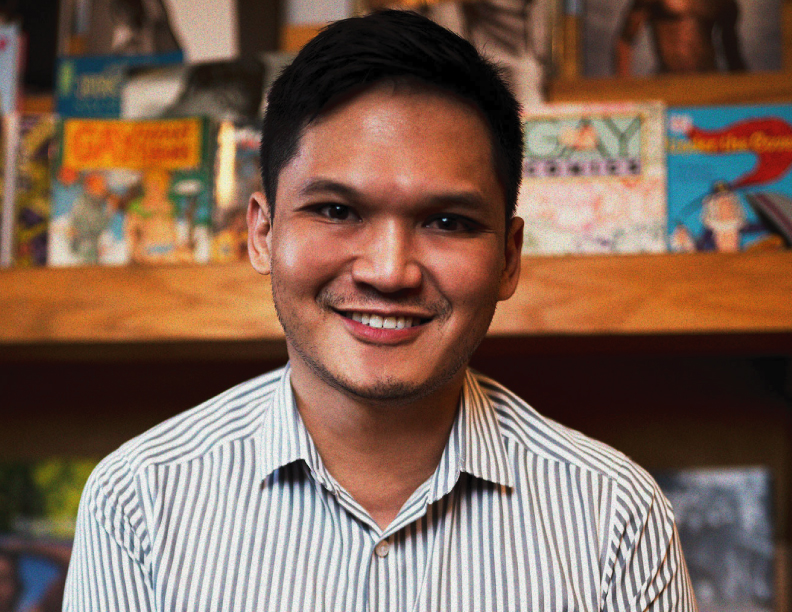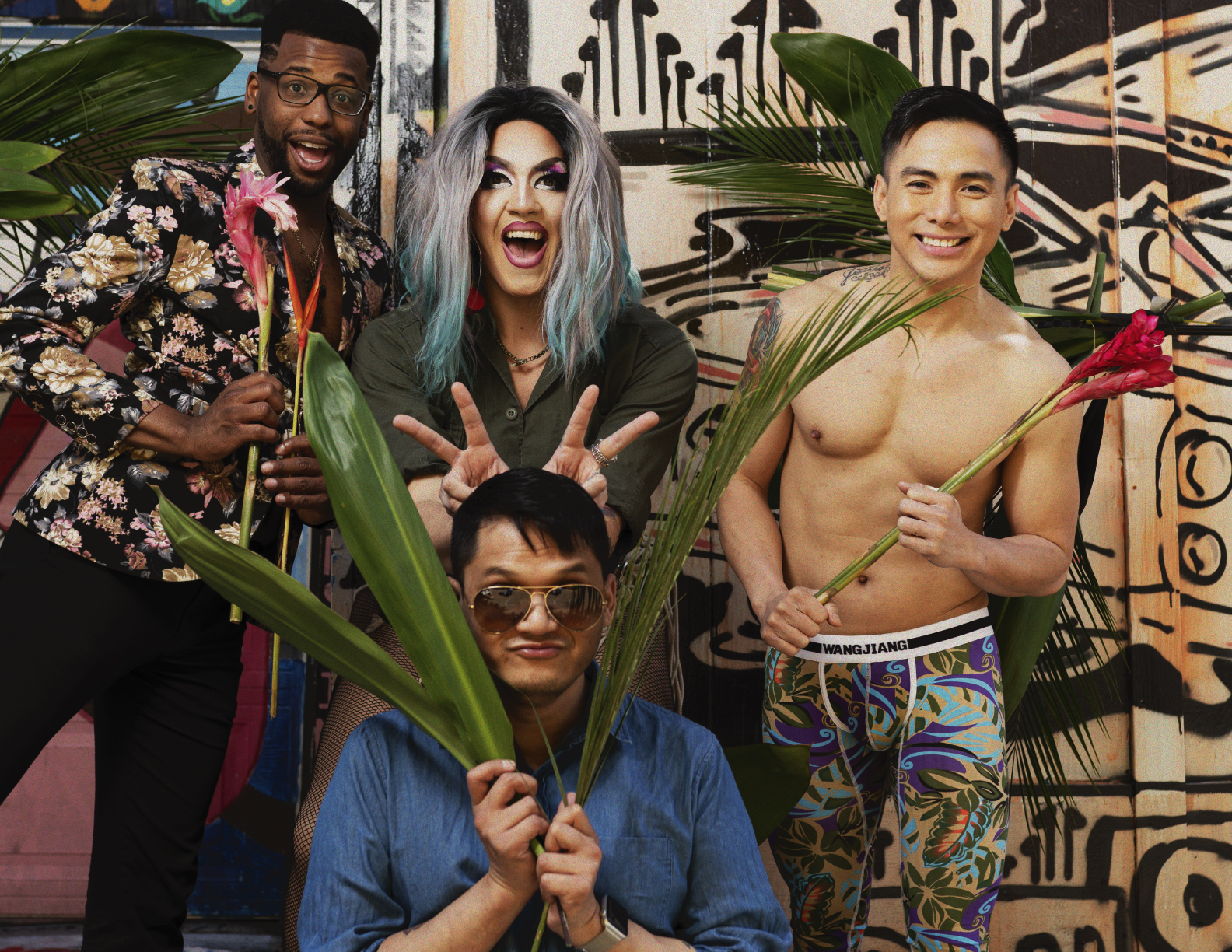
Goofing off with this issue’s cover people. Shot on location at 814 Grove St. (courtesy of Mike Finn) by Dominick Hildebrand.
EDITORIAL
The POC Agenda
■ PAOI EULALIA PUBLISHER Revolution Issue 2019
Children of The POC Revolution
The time has come for POCs to take their place in American society. Every moment counts if we want racial equality now. That’s why as publisher of this non-profit media organization, I can only justify spending the money I have and raised on MXD Magazine as a very worthwhile investment. It’s notable that every issue we’ve launched so far is only made possible by the very few generous donors and community sponsors that we have. For all the support we’ve gained amidst our youth in the media, MXD thanks you for joining our movement. You’re all my heroes.
Who knew that raising money against racism would be one of the toughest pitches I‘d ever make. What apparently has been easy to acquire are polarizing opinions on how to address race relations and cultural differences. We POCs seem to argue often on whether we need White people or not in this movement. White people I’ve chatted with either want to get involved or give me a lecture on why POCs should stop complaining about racism and get over ourselves. One white friend even commented, “Why should I support a magazine that doesn‘t feature people like me?”
In this issue, MXD explores the many ways Bay Area POC leaders and White allies approach racism within the LGBTQ community. The term equitable always comes up to justify why we need to feature lesser White people in the media. In Ask an Ally, radio podcast host Simma Lieberman outlines a plan of action for White folks hoping that maybe other White people might be willing to listen. Ultimately, this issue is intended to be assertive and unapologetic for the purpose of striking a chord, but without malice. That’s why this third installment dares to feature more people whose voices have been rarely featured in the media, like Hometown Heroes Tita Aida, Leandro Gonzales, and Levi Maxwell—all cover-worthy in their unsung merits. We also explore why trans people like up-and-coming fashion designer Veejay Floresca go back in the closet to pursue their goals, and the Hollywood effect of films like Crazy Rich Asians through the voice of Stanford University arts historian Viv Liu. MXD also aims to cultivate diverse sexuality by featuring the most beautiful POCs in our community like our centerfold Mirza and the Burlesque Renegades of the Bay, #WomanopolySF.
Racism is a social disease that needs to be treated aggressively. It has been swept under the rug too long and often that it needs to be unearthed and extinguished like a parasite. It’s time for us to pick a mode of action: Are we going to stay silent to protect what seeming security we have in our social circles? Or are we going to stand up and fight for long-term racial justice and equality? Our success as LGBTQs, though volatile, was achieved through activism and education. There’s reason to believe that racial equality is worth the same passion and dedication.
If I mention this too often, it is only because it is easily forgotten or unseen due to our differences. We must find common ground in the fight for racial equality. While we have different strategies in eliminating racism, I truly believe our differences are reconcilable. Reach out to anyone in our editorial board with your comments, suggestions, or contributions. We will do our best to stay published and ensure that all of us, Children of the POC Revolution, have a safe space to gather and call home.

EDITORIAL
The POC Agenda
■ PAOI EULALIA PUBLISHER Kink Issue 2018
Finding Common Ground
Among the hate mails I’ve received since launching MXD Magazine last June, my favorite was being called out for using the term white privilege. As it turns out, according to Kevin S. who also claims he is a big-dicked white top, white privilege is a racial slur against white people. My first reaction was to roll my eyes and ask him questions like, “Have you ever shopped in a Louis Vuitton store and refused service because you’re a person of color?” Even Oprah can’t get away with being Oprah fucking Winfrey. For some reason, I caught myself understanding why he felt that way rather than disdain.
While I never intend to offend anyone by pointing out what I think is socially unjust, I always find it rewarding to spark a conversation about race relations within the LGBTQ community by somehow striking a chord among people who react to POCs’ plight outspokenly either with empathy or outrage. I think it’s safe to say that Whites in America are reacting the way they do because being accused of bearing systemic power is new to them. I get it. It’s human nature to take for granted something that we’ve always had. And having power everyday can definitely numb its possessor from its existence simply because it is the norm. Heck, the first time someone suggested I had a problem with drugs and alcohol, my first reaction was, “How dare you?!” It took me most of my 30s to come to terms with the fact that I am an addict. And what happened after that admission was just very healing.
The first step to achieving racially equality, in my opinion, is for white people to admit that they do hold systemic privilege in America. The next step is for them to willingly share this privilege to those who need it the most. In this issue, racial disparities are illustrated where Whites have advantage over POCs. MXD is honored to hear from an Oakland native who describes gentrification as a threat to struggling Blacks who just want to protect their homes. A Chicago community leader explores why POCs with higher risk of HIV infection are the ones who have lesser access to PrEP.
Also in this issue is MXD’s acknowledgment that women and gender-fluid people of color need media representation more than ever. I may have had a lapse of judgment in our first issue for launching it as a men’s magazine, which I have a sincere regret. “Better late than never.” That said, MXD is dedicating itself to more authentic portrayals of an All-American LGBTQ—where men wear makeup without being shamed for being feminine, where women can take their shirts off freely like men, where trans people are portrayed as the real men and women that they are, and where gender non-conformists are treated equally than sensationalized.
This issue celebrates sex as a God-given power that needs to be used responsibly. When portrayed tastefully and positively, sex has the power to redefine beauty and desirability. It will take more than a magazine for POCs and allies to unlearn what American media cultivated in us throughout its existence. We may not be able to change the learned racial sexual preferences of the current population. But it is up to us to create new media that will raise our youngens to the concept of beauty beyond being Caucasian, young, and hung.
We may all disagree with how we can address racism and inequality. What we can all agree on as we find common ground is that discrimination in all forms is unacceptable and has no place in America.



EDITORIAL
The POC Agenda
■ PAOI EULALIA PUBLISHER Pride Issue 2018
Starting where we left off
MXD Magazine is not the first attempt to publish a magazine that celebrates LGBTQ people of color (POCs) in San Francisco. Today marks a reincarnation. Previous attempts are now preserved in the GLBT History Museum. Discontinued. Frozen in time. Forgotten. I have yet to find studies on how and why publications like Noodle and Fat Girl, among others, met their demise. But I have a strategy to make this time different.
I never felt I was inferior to any person until I moved to the US when I was 23. Fresh off the boat, I was convinced I had all it took to pursue my American dream. More and more each day, I realized that being a POC here was a shackle from which I would have to break free—even to get inside a corporate door. I found I had to work three times as hard to compete with the white man for the same job.
At the time, back in the early 2000s, even gay.com failed to help my self-esteem when I saw it was accepted to add “No fats, no femmes, no Asians” in online profiles. I’m not sure exactly when I felt inferior for being a POC, but I do know how long I believed the lie. It was long enough that only early in this year did I start formalizing my long-time dream to publish a magazine. I never really knew what issues to shed light on. Then I realized that I had one all along that was blinded by low self-esteem, and numbed myself with alcohol and drugs.
I was at the 2018 Creating Change Conference in Washington, DC, where 5000+ attendees were organizing on LGBTQ issues. It was great fun for me until one of the main meetings celebrated artist Tom of Finland for paving a way for gay men. Tom—Touko Laaksonen—was undeniably talented, yet I was getting furious as if I were reacting to an unwanted visitor. Then it dawned on me: Could my anger be that it seems the advancement of gay liberation was happening in popular culture at the cost of a poor overall branding of the queer/trans spectrum?
There seem to be white gay men among us who believe that the best way to advocate for gay rights is to be represented by hypermasculine white men. I don’t believe that Laaksonen was racist or ignorant. He was exposed to a limited type of gay men and sought to boost an image of gay hypermasculinity that was lacking in popular culture. But some of his admirers have taken that to mean that those of us who don’t conform to that image are to be segregated or are inferior.
American mass media’s LGBTQ portrayals through the years also have not helped our popular culture image. The late Vito Russo, author of The Celluloid Closet, documented much of this history. As gay liberation has evolved, white supremacy has continued to prevail along with a misguided notion that queer men are expected to be hypermasculine in order to be respectable, desirable, and viable.
We cannot reverse the events that led to racial, cultural, gender-expression, and economic disparities in our own communities. We can organize and work, however, to curb the inequality. We can have hope and reach out so that others will join our equality movement.
I have high hopes about MXD Magazine, especially as journalism and design are the fields with which I am most familiar. Some lead with a sword, and some lead with a pen (or a really fast computer). I want to level the playing field among GBTQ+ men by investing in media that represent the underrepresented. I hope to cultivate among our audiences, especially young adults, the truth that POCs and non-conforming individuals are beautiful, desirable, and valid, just as is the hypermasculine gay white man. We all deserve respect.
The mass media still mostly use the white hypermasculine male as a tool to sell a product or move an idea. Those are discussions for other issues of this magazine. However, the question that begs to be answered is “If San Francisco’s POCs comprise 51.5% of the population, then why are POCs underrepresented in our region’s mainstream media?”
A few of my friends asked me why I didn’t include LBTQ+ women and a lot of white men in our little magazine. I responded that my familiarity is with GBTQ+ men, and I am not equipped to represent women’s issues. As for the concept of limiting the number of white men featured, I firmly believe that we need this one to be ours for now, until our local mass media decide to have racially proportional and thoughtful depictions of POCs.
What you can expect from MXD Magazine is an approach to meet our aspirations that is mindful of the depths of sex and intimacy in what makes us queer/trans people. These are intensely connected to our intellect. So, I want to publish a magazine that will make you not only interested in the written word, but also hot to jerk off to the nerdy Asian guy at the library, the androgynous Latinx in the subway, the flamboyant Black queen in the club, the sexy Middle Eastern store owner in your neighborhood, and the hottest trans dude you’ve ever seen in the gym shower.
Historically, galvanizing figures such as Cleopatra and Madame CJ Walker have risen to positions of power at times when women were not expected to be influential. If they can use their sexuality to make people listen to them and gain respect, so can we.
MXD Magazine will be different than those that came before us. We are a free publication supported by advertisers and LGBTIQ2+/Ally donors. Our content will be original and light, yet insightful, and will always have more pages than advertisers. We will always have an opinion, but open to discussion and listening to those with whom we disagree, willing to be corrected when wrong.
It takes a village, as the saying goes. I am inviting you to join me in this small part of the revolution to advance racial quality. Follow us and share about us on social media. Make a donation to ensure our continued circulation. Advertise with us and tell people you support full equality in the LGBTIQ2+ communities. We can do this if we work together.











